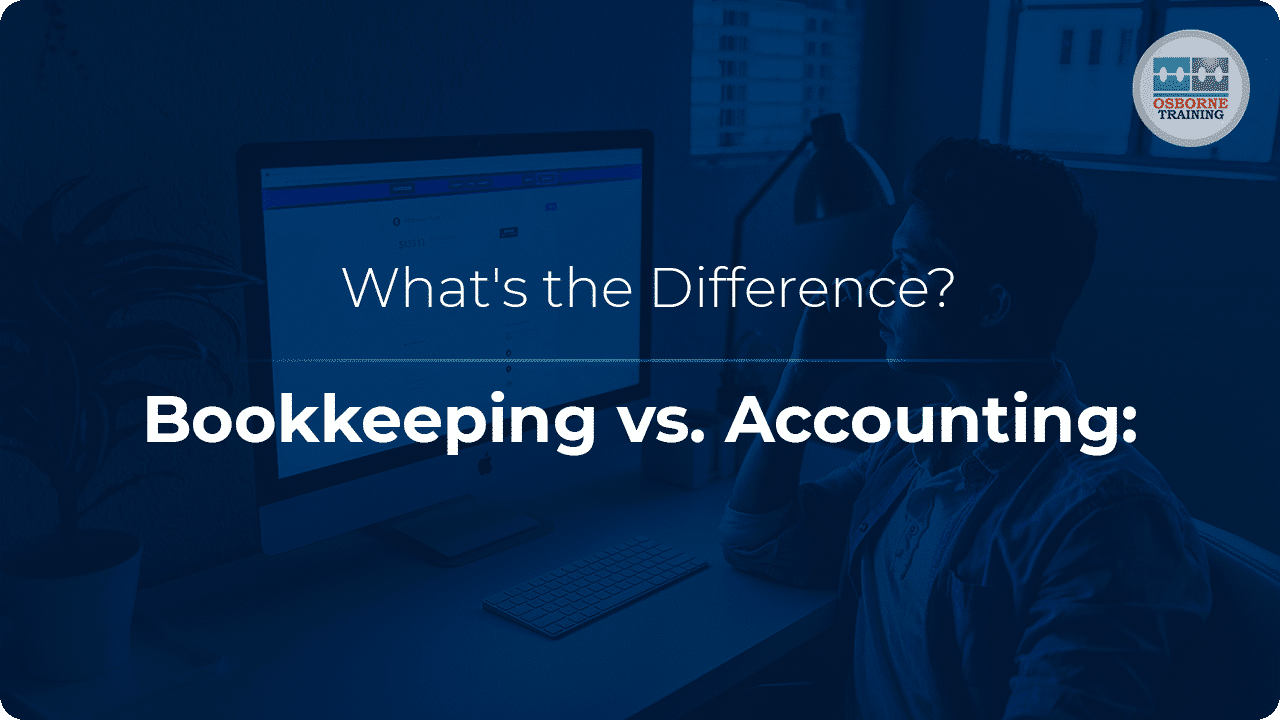
Bookkeeping vs. Accounting: What’s the Difference?
In the world of finance, bookkeeping and accounting are often used interchangeably, leading to confusion about their roles and responsibilities.
While they are closely related, bookkeeping and accounting serve distinct functions in the financial management of a business.
In this blog, we will dive into the details to clarify the differences between bookkeeping and accounting, highlighting their unique contributions to a company’s financial operations.
A. Bookkeeping: The Foundation of Financial Records

Bookkeeping is the systematic process of recording, organizing, and maintaining financial transactions.
It focuses on the accurate and timely recording of day-to-day financial activities.
Bookkeepers play a crucial role in ensuring that financial records are accurate, complete, and up-to-date.
The Key tasks performed by bookkeepers include:
- Recording Transactions:
Bookkeepers record financial transactions, such as sales, purchases, receipts, and payments, in journals or accounting software.
They ensure that each entry is properly classified and documented, creating a clear audit trail.
- Managing Accounts Receivable and Accounts Payable:
Bookkeepers track customer payments, create and send invoices, and manage accounts receivable.
They also handle vendor invoices, track payment due dates, and manage accounts payable.
By accurately recording and monitoring these transactions, bookkeepers maintain a clear picture of the company’s financial obligations and cash flow.
- Reconciling Bank Statements:
Bookkeepers compare bank statements with the company’s financial records to identify discrepancies and ensure accurate financial reporting.
By reconciling bank accounts, they can identify any errors, missing transactions, or fraudulent activities that may have occurred.
- Maintaining General Ledgers:
Bookkeepers update and maintain the general ledger, which contains all accounts and transactions.
They ensure that debits and credits are properly recorded, making sure that the books are balanced and providing a snapshot of the company’s financial position.
B. Accounting: Interpreting Financial Data for Decision-making

Accounting encompasses a broader set of activities that go beyond recording transactions.
Accountants utilize the information generated by bookkeepers to provide insights, analyse financial data, and assist in decision-making processes. Key responsibilities of accountants include:
- Financial Analysis:
Accountants analyse financial data to identify trends, patterns, and insights that can help management make informed decisions.
They assess the financial health of the company by examining key financial ratios, performance indicators, and profitability metrics.
- Preparation of Financial Statements:
Accountants prepare financial statements, including the balance sheet, income statement, and cash flow statement. These statements provide a comprehensive overview of a company’s financial performance and position.
They are crucial tools for evaluating the company’s financial health, making strategic decisions, and meeting regulatory requirements.
- Tax Planning and Compliance:
Accountants ensure that businesses comply with tax regulations by preparing tax returns, maintaining accurate tax records, and staying updated on tax laws.
They provide guidance on tax planning strategies to minimize tax liabilities and ensure proper compliance.
- Budgeting and Forecasting:
Accountants assist in creating budgets, setting financial goals, and forecasting future financial performance based on historical data and market trends.
They collaborate with management to develop financial plans that align with the company’s objectives and provide insights on resource allocation.
- Financial Advisory:
Accountants offer financial advice and guidance to help businesses make informed decisions. They assess the financial implications of various options, evaluate risks, and recommend strategies for growth, profitability, and sustainability.
Accountants play a vital role in strategic planning and providing financial insights to support business objectives.
C. Key Differences and Similarities between Bookkeeping and Accounting:
- Focus:
Bookkeeping primarily focuses on recording and organizing financial transactions, while accounting involves interpreting and analysing financial data for decision-making and strategic planning.
- Scope:
Bookkeeping deals with the day-to-day financial activities and maintenance of accurate records, while accounting encompasses a broader range of financial analysis, reporting, and strategic financial management.
- Skill Level:
Bookkeeping requires strong attention to detail, accuracy, and knowledge of bookkeeping principles and software.
Accounting demands a higher level of expertise, including financial analysis, interpretation, and a deeper understanding of accounting principles and regulations.
- Collaboration:
Bookkeepers often work closely with accountants, providing them with accurate financial records and supporting the accounting process. Both roles require effective collaboration to ensure accurate financial reporting and decision-making.
Over to you:
Bookkeeping and accounting are vital components of a business’s financial management, each with its distinct responsibilities and contributions.
Bookkeeping focuses on the accurate recording and organization of financial transactions, while accounting involves analysing financial data, preparing financial statements, and providing financial insights for decision-making.
Understanding the differences between bookkeeping and accounting can help you take an informed decision as to which career path is more suitable for you.
Click here to learn more about our AAT accredited Accounting and Bookkeeping courses.
Must Read | How to be a Certified Bookkeeper






